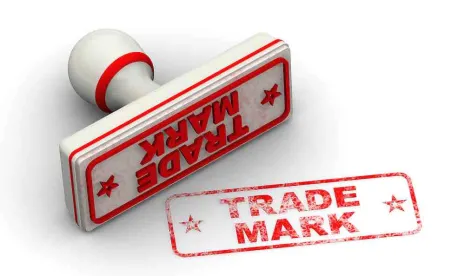-
Reexaminations, expungements, and fraud-based cancellations – Since Congress passed the bipartisan Trademark Modernization Act of 2020, brand owners and trademark practitioners have been awaiting the Trademark Office’s launch of “modern” procedures intended to reduce cluttering on the federal register and clear the path for new applications. Effective December 18, 2021, the primary new procedures are expungement and reexamination proceedings which, according to the Trademark Office, “are intended to allow third parties to bring nonuse of registered marks to the attention of the USPTO.” The Trademark Office’s Examination Guide 1-21 speaks for itself regarding the nuts and bolts of these procedures, which are effectively a hybrid of a letter of protest and audit for the purpose of pressure testing use claims. Whether these procedures truly become “faster, more efficient, and less expensive alternative[s] to a contested inter partes cancellation proceeding” remains to be seen. Throughout 2022, trademark practitioners will be closely monitoring the USPTO Director’s (i) case-by-case determination of what concise factual statements and documentary evidence constitute “an appropriately comprehensive search” of whether the relevant registered mark was never used in commerce, and (ii) determination of whether a prima facie case of nonuse has been made based on the concise factual statement and documentary evidence. Proving a negative –the absence of use – to the USPTO Director’s satisfaction could turn out to be a deceptively-simple task that, in some cases, requires more effort and evidence than initiating a cancellation proceeding. Likewise, trademark practitioners will be observing what, if any, Director-initiated proceedings come to fruition.
Even with two new non-Trademark Trial and Appeal Board options for challenging registrations with questionable use claims, the outcome of the U.S. Court of Appeals for the Federal Circuit’s pending review of the Board’s 2021 Chutter, Inc. v. Great Management Group, LLC decision will likely affect the calculus between reexamination/expungement proceedings and cancellation proceedings. After the Board granted a record number of successful fraud claims in cancellation and opposition proceedings during the Medinol era (2003 – 2009) while employing an erroneous negligence (“knew or should have known”) standard, after the CAFC’s 2009 landmark decision and reversal of the Board in Bose (requiring instead a specific intent to deceive), trademark fraud claims and decisions have been exceedingly quiet. Indeed, during the more-than-decade-long aftermath of Bose, and until the Board’s 2021 precedential decision in Chutter, the Board had sustained only one fraud claim under the CAFC’s much higher specific-intent-to-deceive standard. In Chutter, the Board held that reckless disregard in making a false Section 15 Declaration for obtaining incontestability should not only invalidate the incontestability, but require cancellation of the underlying registration too. If the CAFC affirms this reckless-disregard standard, fraud-based cancellations may once again become the weapon of choice for challenging the use claims in registrations, particularly because fraud claims can result in full cancellation of a registration, not just cancellation with respect to goods or services for which there was or is nonuse.
-
USPTO office action response period changes – Trademark practitioners before the USPTO have always enjoyed long office action response periods relative to most of their non-U.S. counterparts. As part of the Trademark Modernization Act’s implementation, effective December 1, 2022, for all non-Madrid Protocol U.S. applications, the customary six-month office action period will be bifurcated into two three-month periods. The first three-month period is the default period. The second three-month period is available only upon request and the payment of an official fee of $125. Of course, applicants represented by counsel will also likely incur professional fees associated with preparing and filing the three-month extension request. While, for multi-class applications, the USPTO has typically charged official fees on a per-class basis (for example, application fees, statement of use fees, and extensions of time to file statement of use fees), it is unclear whether the $125 official fee is per class or per application. If the latter, this may swing the best-practice pendulum from multiple single-class applications towards multi-class applications to lessen the official fees in case an extension of the office action response period is needed.
-
CBD and marijuana brand management strategy – The number of branded CBD and marijuana products grew substantially in 2021 and will likely continue to do so in 2022. Throughout 2021, the USPTO refused to register brands used for marijuana products (under the Controlled Substances Act) and brands used for ingestible CBD products (under the Federal Food, Drug, and Cosmetic Act). In 2022, the pressure will likely grow on the USPTO to delicately balance the lawful commerce requirement for federal registration with the consumer protection goals of the Lanham Act.
-
New technologies brand management strategy – One of 2021’s most-popular collectibles were digital artwork and sound files embedded with block chain technology, typically in the form of so-called non-fungible tokens or NFTs. In October and November 2021, NFTs entered the USPTO’s standard lexicon through 12 new pre-approved goods and services identifications in the USPTO’s Trademark ID Manual. Acknowledging that brands are not typically used as a source indicator of the authentication tokens themselves, but the digital assets to which the authentication tokens are affixed, the USPTO correctly identified these goods as Class 9 downloadable music and multimedia files “authenticated by non-fungible tokens (NFTs).” At the same time, many brand owners of hard goods such as footwear, clothing, jewelry, and watches launched or planned to launch “virtual goods” simulating their hard goods and sought to register these “virtual goods” in Class 9 (electrical and scientific apparatus) and the virtual goods’ “virtual environments” in Class 41 (entertainment and education services). While services and physical goods have been fanned out across multiple trademark classes allowing peaceful coexistence on the trademark register, the convergence of the corresponding “virtual goods” and NFT-backed collectibles all in Class 9 is creating a land rush in this trademark class and could create some trademark battles in 2022 and beyond. For example, the proverbial Alpha Airlines and Alpha faucets that peacefully coexisted in unrelated classes for years may be forced to battle for Class 9 priority for their virtual goods and/or NFT-backed collectibles.
-
College athlete NIL brand management strategy – One of 2021’s biggest sports stories was the National Collegiate Athletic Association’s adoption of a policy allowing college athletes to commercialize their names, images, and likenesses. Of course, trademarks are afforded many rights under federal law that name, image, and likeness rights lack under disparate state laws. So, it was not surprising that there was a trademark application land rush, as many college athletes were advised to develop and apply to register word marks and logos, especially “futureproof” brands that could endure transfer to another college and matriculation to professional athletics. In 2022, the commercialization of these brands will be front and center, to see whether intent-to-use applications mature into registrations and whether the cost of securing these rights is exceeded by income from commercializing these rights. This data will likely shape long-term brand management strategies for college athletes. It will also be interesting to see whether the limited combinations of player numbers and initials leads to priority battles in the USPTO.
5 Trends to Watch in 2022 for Trademark and Brand Management
Tuesday, January 4, 2022
Current Public Notices
Published: 15 September, 2025
Published: 15 September, 2025
Published: 9 September, 2025
Published: 9 September, 2025
Published: 8 September, 2025
Published: 4 September, 2025
Published: 28 August, 2025
Published: 25 August, 2025
Published: 22 August, 2025
Published: 20 August, 2025
Published: 20 August, 2025
Published: 18 August, 2025
Published: 11 August, 2025
Published: 8 August, 2025
Published: 26 June, 2025






 />i
/>i

